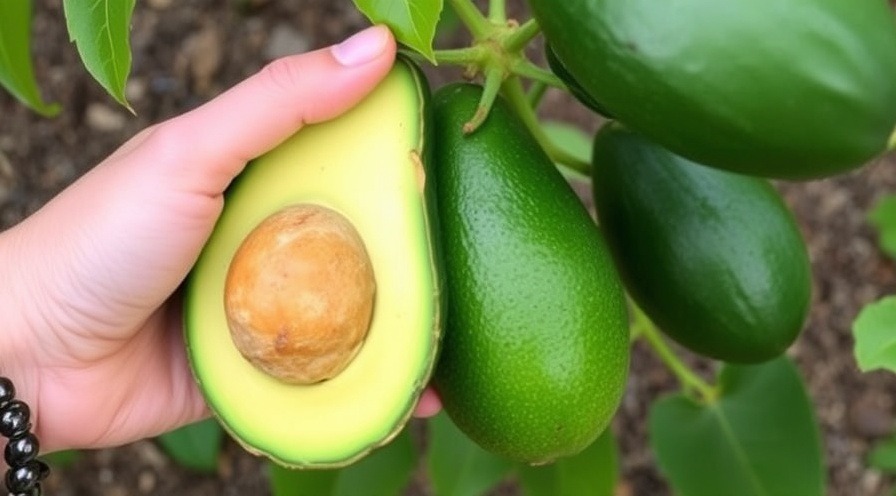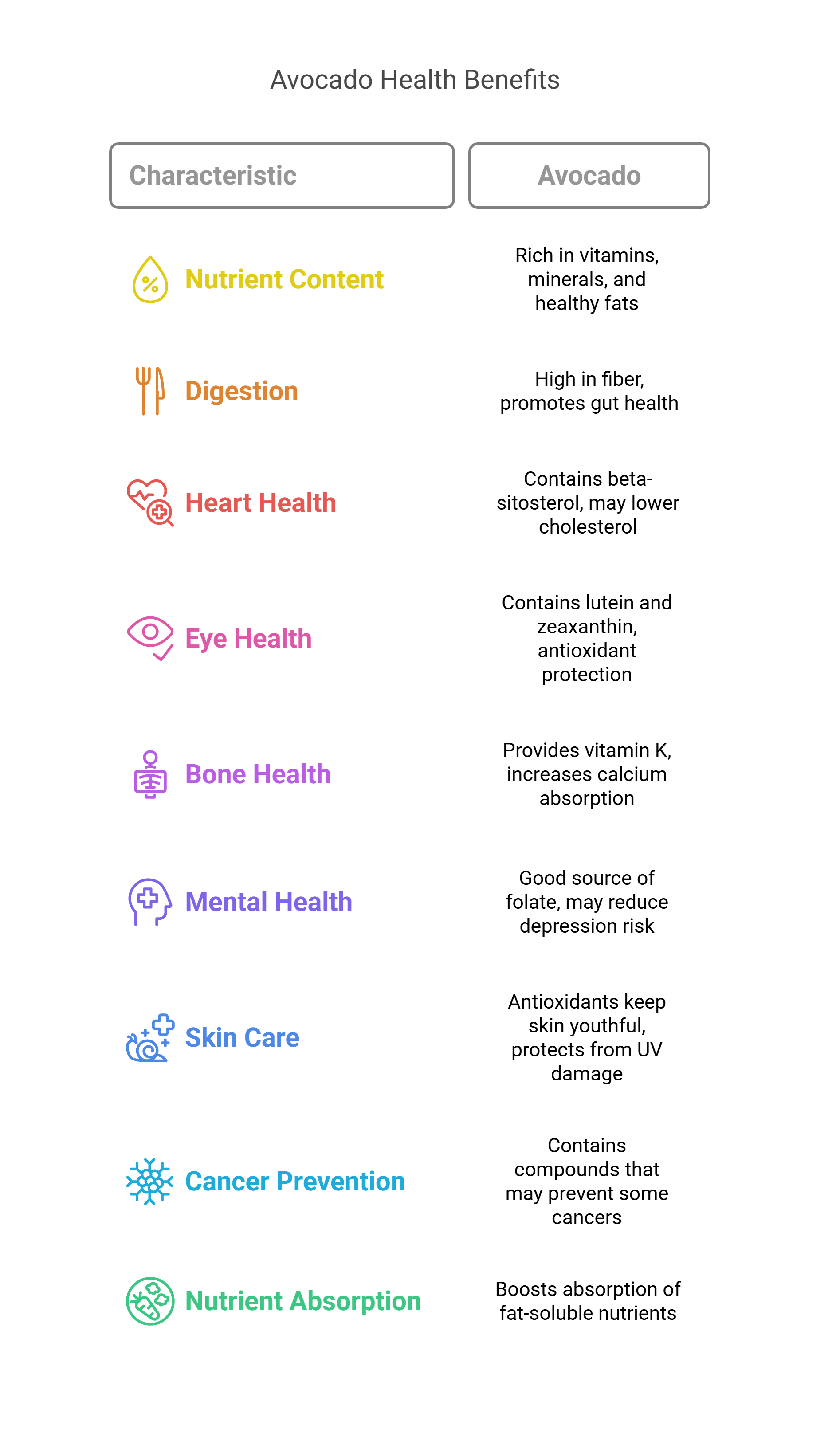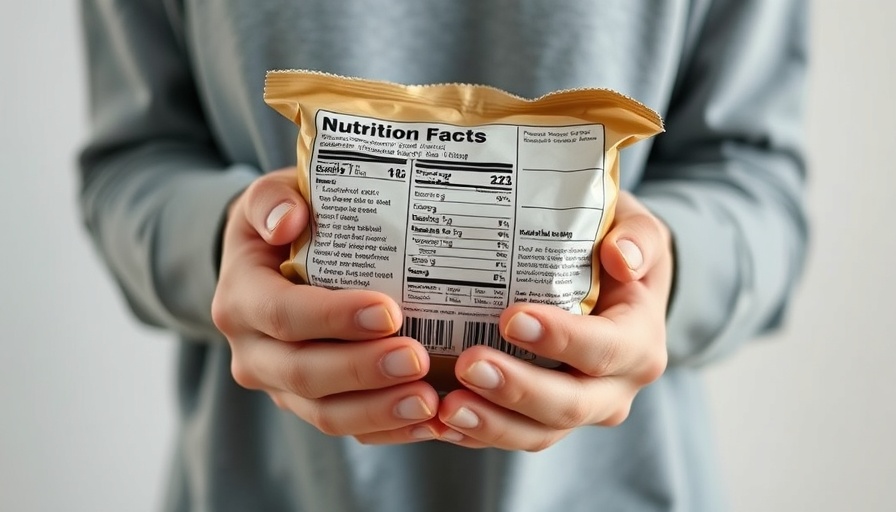
Avocado Love: Why They're Amazing for Your Health & How to Grow Your Own Green Friend!
Are you as obsessed with avocados as we are? Whether mashed on toast, diced in a salad, or blended into a smoothie, these creamy, green gems have taken the world by storm, and for good reason! They've even been called "America's new favorite fruit". Turns out, they're not just yummy; they're also incredibly good for you! Plus, did you know you can try growing your very own avocado plant from the pit? Let's explore all the amazing things about avocados!
The Incredible Health Benefits of Avocados
Avocados are truly nutritional powerhouses, loaded with a wide range of vitamins, minerals, and other nutrients that can help keep you healthy. They're a type of berry that grows in warm climates, also known as an alligator pear or butter fruit.
Here are some of the fantastic ways incorporating avocados into your diet can benefit your health, according to the sources:
Nutrient Rich!
Avocados are a source of vitamins C, E, K, and B6. You'll also find riboflavin, niacin, folate, pantothenic acid, magnesium, and potassium in them. They even provide lutein, beta carotene, and omega-3 fatty acids. With all these nutrients, it's no wonder they are often considered a superfood.
Healthy Fats That Help You Feel Full
Avocados contain high levels of healthy, beneficial fats. These monounsaturated fatty acids are a substantial part of their makeup. Eating these healthy fats can help you feel fuller between meals. Plus, eating fat helps slow the breakdown of carbohydrates, which keeps blood sugar levels stable. Research even suggests this type of fat in your diet can help trim your waistline. It's recommended that the majority of the fat you eat should be unsaturated, like that found in avocados.
Fiber for Digestion and More
These green wonders are high in fiber, offering approximately 6–7 grams per half fruit. Eating foods with natural fiber can help prevent constipation and maintain the health of your digestive tract. Adequate fiber also promotes regular bowel movements, important for the excretion of toxins.
Studies show dietary fiber promotes good gut health and microbial diversity. Beyond digestion, optimal fiber intake may also help reduce the risk of stroke, hypertension, diabetes, obesity, and certain gastrointestinal diseases. It can even lower blood pressure and cholesterol levels.
Happy Heart Helper
In every 100 grams of avocado, there are 76 milligrams of beta-sitosterol, a natural plant sterol. Regularly consuming plant sterols like beta-sitosterol may help maintain healthy cholesterol levels, which are important for heart health. Early research indicates avocados may also help lower "bad" cholesterol, triglycerides, and blood pressure.
Great for Your Eyes
Avocados contain lutein and zeaxanthin. These phytochemicals are present in eye tissue and provide antioxidant protection to help minimize damage, including from UV light. Adding avocados to your diet may help reduce the risk of developing age-related macular degeneration. The healthy fats in avocados also support the absorption of other beneficial fat-soluble antioxidants, like beta carotene.
Supports Strong Bones
Half an avocado provides about 18% of the daily value of vitamin K. Vitamin K is essential for bone health by increasing calcium absorption and reducing the urinary excretion of calcium. Getting enough of this nutrient may help improve bone density and prevent fractures.
May Help Reduce Depression Risk
Avocados are a good source of folate, a B vitamin. Studies have found links between low folate levels and depression. Folate helps prevent the buildup of homocysteine, a substance that can impair circulation and delivery of nutrients to the brain. Excess homocysteine has been linked to cognitive dysfunction and depression.
Skin Care Star
Whether you eat it or use it topically, avocado can be great for your skin. Its antioxidants, like vitamin C, can help keep your skin looking youthful by smoothing out wrinkles. The same nutrients that protect your eyes also protect your skin from UV damage.
Potential Cancer-Fighting Compounds
While studies haven't assessed a direct link between avocado consumption and a reduction in overall cancer risk, avocados do contain compounds that may help prevent the onset of some cancers. Optimal folate intake has been associated with a reduced risk of certain cancers like colon, stomach, pancreatic, and cervical cancers.
Avocados also contain phytochemicals and carotenoids which may have anticancer properties or protect against cancer progression. One study associated more than one weekly serving with a decreased risk of colorectal, lung, and bladder cancer, though more research is needed.
Boosts Absorption of Other Nutrients
Certain nutrients like vitamins A, D, E, and K, and the antioxidant lycopene, are fat-soluble. This means your body absorbs more of them when you eat them along with some fat. Avocados are a perfect pairing for foods containing these, like tomatoes, grapefruit, watermelon, or cantaloupe.
With all these amazing benefits, it's clear why avocados are celebrated! It's important to enjoy them in moderation, though, as they are calorie and fat-dense. Also, if you take blood thinners like warfarin, be aware that their vitamin K content can affect how these medications work.

Ready for an Adventure? Grow Your Own Avocado Plant!
Now that you know how fantastic avocados are for your health, how about trying to grow one right in your own home? It's a super fun project and a great way to connect with nature! Here's a cool method to get started, based on the steps outlined in one source:
-
Get Your Pit Ready: When you're enjoying your avocado, carefully take out the pit using a spoon, not a knife, so you don't damage the seeds inside. Give the pit a quick soak in water for one hour, and then peel off the thin brown skin. You'll notice a flat bottom and a pointy top – remember that!.
-
Set Up for Sprouting: You need to suspend the pit with just the bottom touching water. You can use the traditional method of placing three toothpicks around the pit to rest on the glass rim. Or, try a newer way using shower rod rings to hold it! Fill a glass with water and place the pit in, ensuring only the bottom part touches the water.
-
Patience and Fresh Water: Place your setup in a spot with good light. A key step is to change the water daily, and we recommend using only filtered water.
-
Watch for Growth! Over the next four weeks, keep watching! You should see a root curl from the bottom. Then, the seed will crack open, and a stem will grow from the top. How cool is that?!
-
Don't Rush to Potting! Here's where a common mistake happens! People see a few leaves and want to plant it in soil. But you need to wait until your stem is about six inches long.
-
The First Prune: Once your stem reaches six inches, it's time for a trim! You need to cut it back by three inches. While it might seem scary, this cutting actually encourages it to grow more!
-
Time for Soil: After the trim, wait for new sets of leaves to grow out. Only then is it the right time to transplant it into soil.
Keep Pruning for Continued Growth: To keep your avocado plant thriving, you need to keep cutting it back every 12 inches. If you don't prune it at this height, it's going to stop growing.
Growing an avocado plant from a pit is a fun, rewarding project. Why not give it a try and do it the right way by following these steps?!
So next time you enjoy that delicious, healthy avocado, think about all the goodness you're getting and maybe save that pit for a little plant adventure! Happy eating and happy growing!
 Add Row
Add Row  Add
Add 




 Add Row
Add Row  Add
Add 

Write A Comment